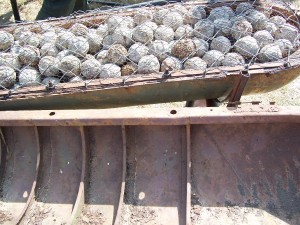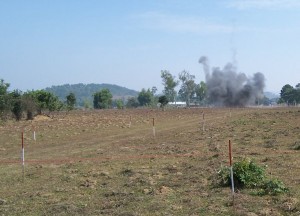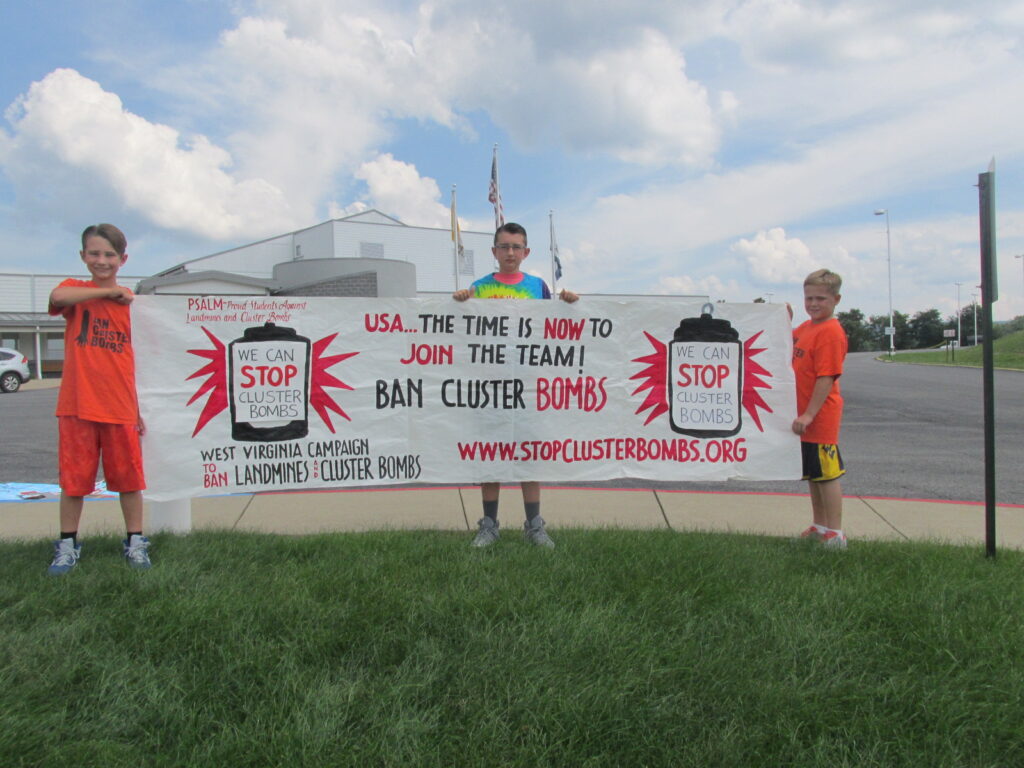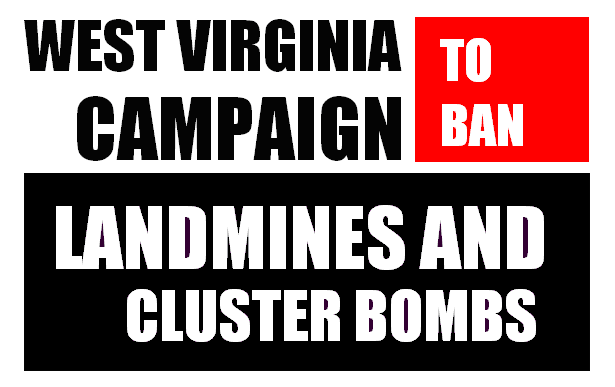To Reconsider Decision…

This past week, President Biden administration’s announced the decision to transfer cluster munitions to Ukraine. Members of the West Virginia Campaign to Ban Landmines and Cluster Bombs and PSALM- Students Against Landmines and Cluster Bombs are saddened by this announcement. We join the U.S. Cluster Munition Coalition (USCMC) in urging the President to reconsider the transmission of cluster munitions.

Cluster munitions are among the most harmful weapons to civilians, as they disperse bomblets indiscriminately across a wide area that often fail to explode on initial impact, leaving duds that litter communities and endanger civilians, especially children, decades after a conflict ends.
Cluster munitions have been used repeatedly by the Russian military since its invasion in February of 2022, causing hundreds of civilian casualties and damaging civilian objects, including homes, hospitals, and schools. The Ukrainian military has also used cluster munitions on multiple occasions, causing civilian casualties.

Russia and Ukraine’s use of cluster munitions is adding to Ukraine’s already massive contamination from explosive remnants and landmines,” said Paul Hannon, International Campaign to Ban Landmines and Cluster Munition Coalition Governance Board Vice Chair.
“We strongly condemn the use of cluster munitions by all parties in the war in Ukraine and call for the immediate end to the use of these horrific weapons anywhere in the world,” said Sera Koulabdara, Chair of the U.S. Cluster Munition Coalitions and CEO of Legacies of War.
Cluster munitions are delivered by artillery, rockets, missiles, and aircraft. They open in mid-air and disperse dozens or hundreds of submunitions, also called bomblets, over a wide area. Cluster munitions not only kill at time of impact, they also leave a lethal trail of unexploded ordnance threatening lives for years to come.
The legacy of these unexploded “bombies” as they are referred to continues to hamper agricultural development in the region, making construction of homes and infrastructure a complex and dangerous proposition, and claiming lives long after conflicts and wars cease.
Members of the West Virginia Campaign to Ban Landmines/Cluster Munitions visited Laos, known as one of the the most heavily bombed countries in the world per capita to document the issue. The scale of devastation caused by cluster bombs is immense and shocking. Xieng Khouang province which is one of the most heavily bombed areas in the Laos. While there we witnessed clearance operations and the destruction of cluster munitions, a tedious and dangerous venture. We were permitted to view the bomb clearance team as they used metal detectors for surface clearance to detect weapons underground. When cluster bombs are found, they were detonated either with a fuse or by an electrical charge. Seeing first-hand the painstaking work of deminers, looking at the blasted craters in the earth and feeling the shock of a blast even from a safe distance gave us a better sense of the reality of the cluster bomb problem that people face every day, years and even decades after wars end.
Cluster bombs are indiscriminate killers that spew deadly shrapnel over large swathes of land. Air-dropped or ground-launched, they cause two major humanitarian problems and risks to civilians. Their widespread dispersal means they cannot distinguish between military targets and civilians. Many submunitions fail to detonate on impact and become de facto antipersonnel mines killing and maiming people long after the conflict has ended. These duds are more lethal than antipersonnel mines; incidents involving submunition duds are much more likely to cause death than injury. As a result, the vast majority of cluster bomb casualties have been civilians many of which are children who happened upon the buried munitions while looking for food or playing.
A total of 123 countries have prohibited cluster munitions by signing or ratifying the Convention on Cluster Munitions, which bans the use, production, transfer, and stockpiling of these deadly weapons. That includes the vast majority of NATO member states.
The world has agreed that biological and chemical weapons may not be used. It is time to ban these weapons recognizing that any conceivable use is outweighed by the moral consequences. We strongly urge the United States to halt the transfer of these devastating weapons.
We will continue to urge ALL countries,including the U.S., to get on board the treaties to ban cluster bombs and landmines. We encourage supportive members of our community and state to learn more about cluster munitions and landmines (NoClusterBombs.org, www.stopclustermunitions.org and www.icbl.org).
Nora D.Sheets
Co-Coordinator/WVCBL: West Virginia Campaign to Ban Landmines
and Cluster Bombs/PSALM: Proud Students Against Landmines
andClusterBombsMorgantown, West Virginia 26508 USA

***********************************************************
PHOTOS BY SHEETS/LAOS
Experts for Contact:
Sera Koulabdara sera@legaciesofwar.org Chair, U.S. Cluster Munition Coalition and CEO, Legacies of War
Titus Peachey tilin2@gmail.com Steering Committee Member, U.S. Cluster Munition Coalition and Emeritus Board Chair, Legacies of War
Daryl G. Kimball dkimball@armscontrol.org Executive Director, Arms Control Association
Mary Wareham wareham@hrw.org Acting Arms Director, Human Rights Watch
Daniel Balson dbalson@aiusa.org Advocacy Director, Europe & Central Asia, Amnesty International USA
Jeff Meer, j.meer@hi.org U.S. Executive Director, Humanity & Inclusion
